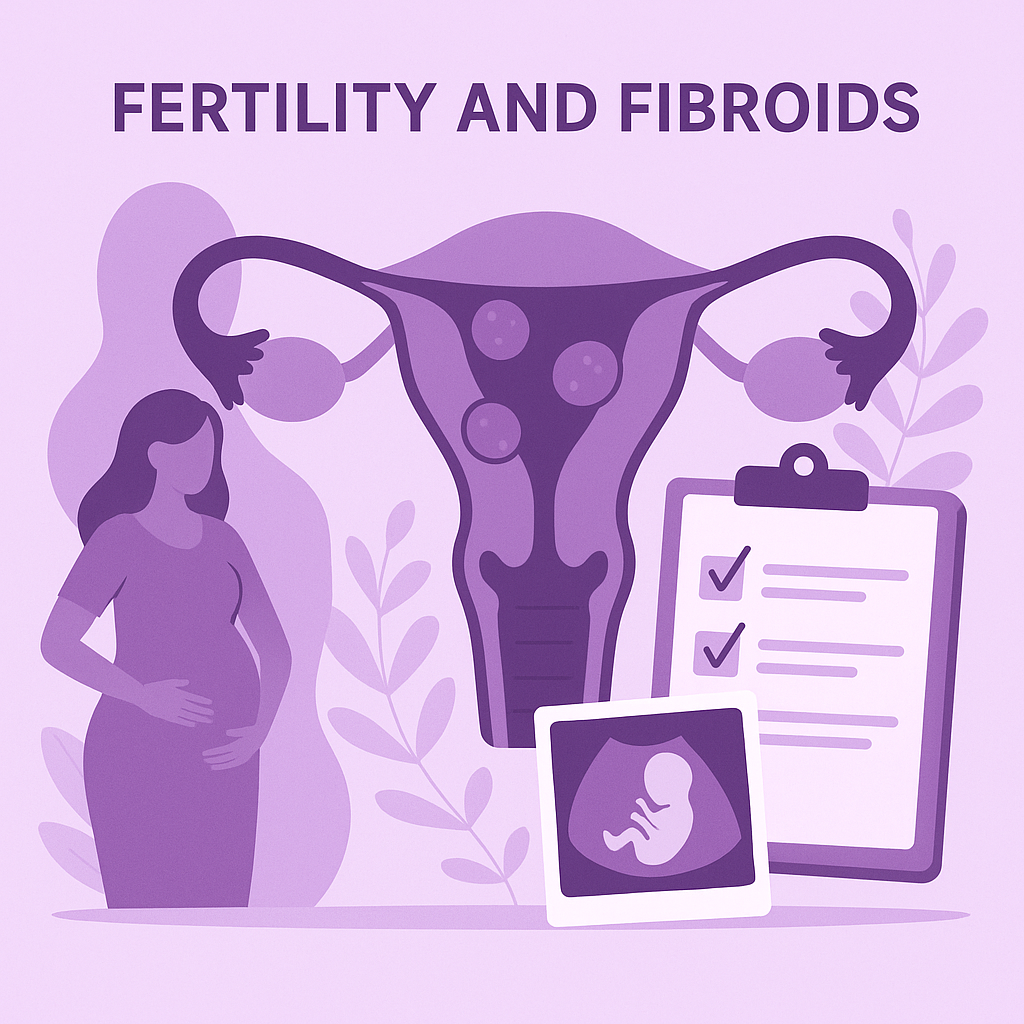Can Fibroids Affect Fertility
Uterine fibroids are noncancerous (benign) tumors that develop in and on the uterus. They are made of smooth muscle cells and fibrous connective tissue. The exact cause of fibroids is unknown, but they are thought to be influenced by hormones like estrogen and progesterone, as well as genetics.
The most common symptoms are heavy periods, pelvic pain, and irregular bleeding. Up to 80% of women will develop uterine fibroids during their reproductive years, and black women are disproportionately affected.
With the high likelihood of having fibroids and the negative symptoms that accompany them, many women wonder, “Will having fibroids negatively affect my fertility?”
How Fibroids Can Affect Fertility
While many women with fibroids have no trouble conceiving, certain types of fibroids can interfere with fertility. The location and size of the fibroid play a big role in whether it causes problems.
- Submucosal fibroids, which grow just beneath the lining of the uterus, are the most likely to affect fertility, as they can distort the uterine cavity, making it harder for a fertilized egg to implant or increasing the risk of miscarriage.
- Intramural fibroids develop within the muscular wall of the uterus. Larger intramural fibroids may expand the uterus or block the fallopian tubes, potentially making conception more difficult or causing complications during pregnancy.
- Subserosal fibroids, which grow on the outer surface of the uterus, rarely affect fertility because they don’t interfere with the uterine cavity or fallopian tubes.
In some cases, fibroids can lead to difficulty conceiving, recurrent pregnancy loss, or complications such as preterm labor. However, many women with fibroids go on to have healthy pregnancies, especially with proper medical care.
When to Consider Treatment
Not all fibroids require treatment. If no symptoms are present or the symptoms that don’t interfere with your life, you likely don’t need to explore treatments.
If you’re trying to conceive, there are a few signs that fibroids might be interfering with your fertility. These include:
- Recurrent pregnancy loss Fibroids that affect the uterine lining can cause recurrent pregnancy loss, including multiple miscarriages.
- Difficulty getting pregnant? If you have tried to get pregnant for 6–12 months without success, and other factors have been ruled out, fibroids may be the cause.
- Heavy menstrual bleeding or significant pelvic pain, which can indicate larger or problematic fibroids.
If any of these apply, it’s worth consulting your doctor about treatment options. Some approaches aim to remove or shrink fibroids while preserving fertility. These may include:
- Myomectomy — a surgical procedure that removes fibroids and leaves the uterus intact. Depending on the myomectomy, this can necessitate delivery by C-section & or early induction at 36 weeks.
- Uterine Fibroid Embolization (UFE) —In Uterine Fibroid Embolization (UFE), doctors shrink fibroids by cutting off their blood supply. Experts still debate how this procedure affects fertility.
- Medication — certain hormonal therapies may help manage fibroid symptoms in the short term.
Fertility After Treatment
Minimally invasive fibroid treatments are the go-to for women who have uterine fibroids and want to preserve their ability to get pregnant.
Both UFE and Myomectomy only target the fibroid, while preserving uterine health. This means that, unlike hysterectomy, women can still get pregnant after these procedures. According to the USA Fibroid Center, a 2017 study published in the journal Radiology found that in a study of 350 women, 41% of those women conceived after receiving a UFE procedure.
These outcomes are a positive outlook for women who are struggling to conceive because of fibroids.
Fibroids can affect fertility, but not always. Their impact depends largely on their size, number, and location within the uterus. The good news is that many women with fibroids are still able to conceive and carry healthy pregnancies, especially with early evaluation and the right care. If you’re trying to get pregnant and have concerns about fibroids, it’s important to speak with your gynecologist or a fertility specialist.
Our fibroid specialists are ready to guide you through available options and recommend the most suitable treatment based on your unique situation. Diagnostic tools like ultrasounds or MRIs may be used during a consultation to pinpoint the fibroids’ size and location, making it easier to decide on a personalized plan.
Contact our team to schedule your fibroid consultation.
